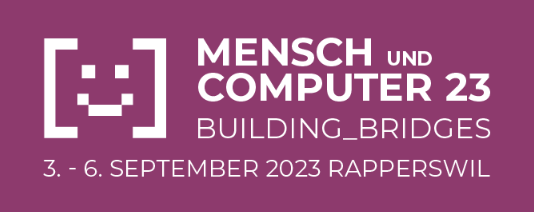Mensch und Computer 2023
Interactive Systems for Healthcare

Important Dates
- Juni 23. 2023: Paper/abstract submission deadline.
- Juli 07. 2023: Acceptance notification.
- Juli 27. 2023: Submission of the camera-ready version
- September 03. 2023: Participation and presentation.
Workshop Plan / Schedule
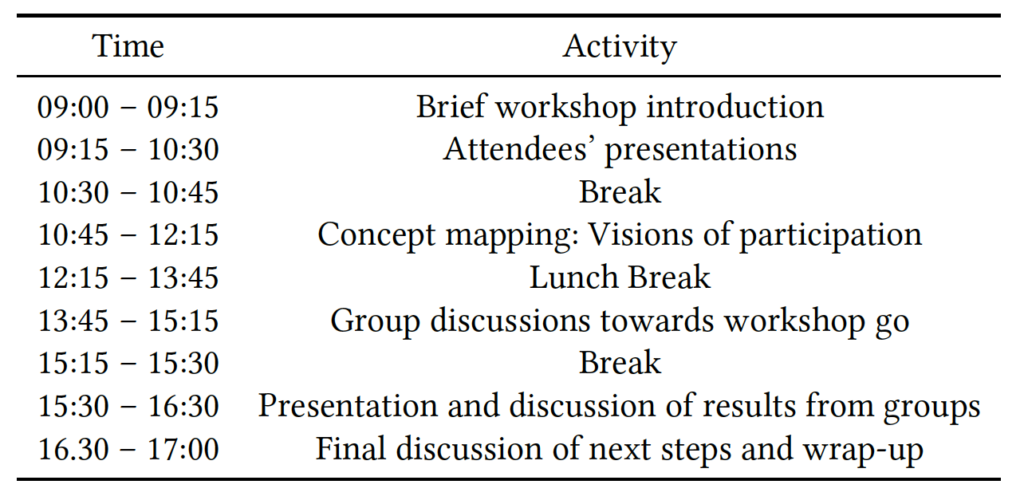
What is the workshop about?
This workshop focuses on developing a systematic approach for reflection of co-creation of hybrid interactive systems in healthcare, i.e. the combination of technology-enabled remote caring and inperson healthcare. The value of hybrid approaches in healthcare has become apparent, in particular, during the recent Covid-19 pandemic, but remains important post-covid, as hybrid modes of operation can mitigate other issues, e.g. remote healthcare delivery, or sustainable healthcare. The advancement of data science and artificial intelligence enables these hybrid modes of healthcare, but it also calls for integrated co-creative design approaches that bring together experts in AI, Socio-Informatics, UX and Ethics as well as citizens and practitioners. Despite a long-standing tradition of participatory approaches within HCI, an analysis of the literature shows that the label ’participatory’ is used addressing many different levels of participation as well as diverse methods. A deeper analysis of the practice of inter- and transdisciplinary participatory research in the healthcare field is, however, missing. Furthermore, the aforementioned technological advancements bring new social, technical and ethical issues to the fore, among others questions of data bias, and empowerment of stakeholders.
Please find the proposal attached for a download:
Why should you attend?
In this workshop we invite researchers and practitioners from diverse backgrounds to share their experiences and (design) case studies in co-creation of hybrid health systems and learn from contextualized best practices and failures. Through building on these experiences and cases and taking inspiration from praxeological research, we would like to collaborate towards a systematic approach for reflection in co-creation of hybrid healthcare systems.
How can you attend?
Potential participants are asked to submit a position paper no longer than 2-4 pages including references and formatted according to the ACM template. Authors are invited to submit case studies, empirical cases, philosophical or theoretical considerations. After submission, the papers will be reviewed by the organisers and selected based on their quality, innovation and relevance to the workshop topics.
We will notify participants of acceptance at an early stage so that both the early bird rate can be selected and conference travels can be arranged.
Submissions can be made through the conf-tool.
Please, contact ">Holger Klapperich or ">Alina Huldtgren for questions.
Organisers
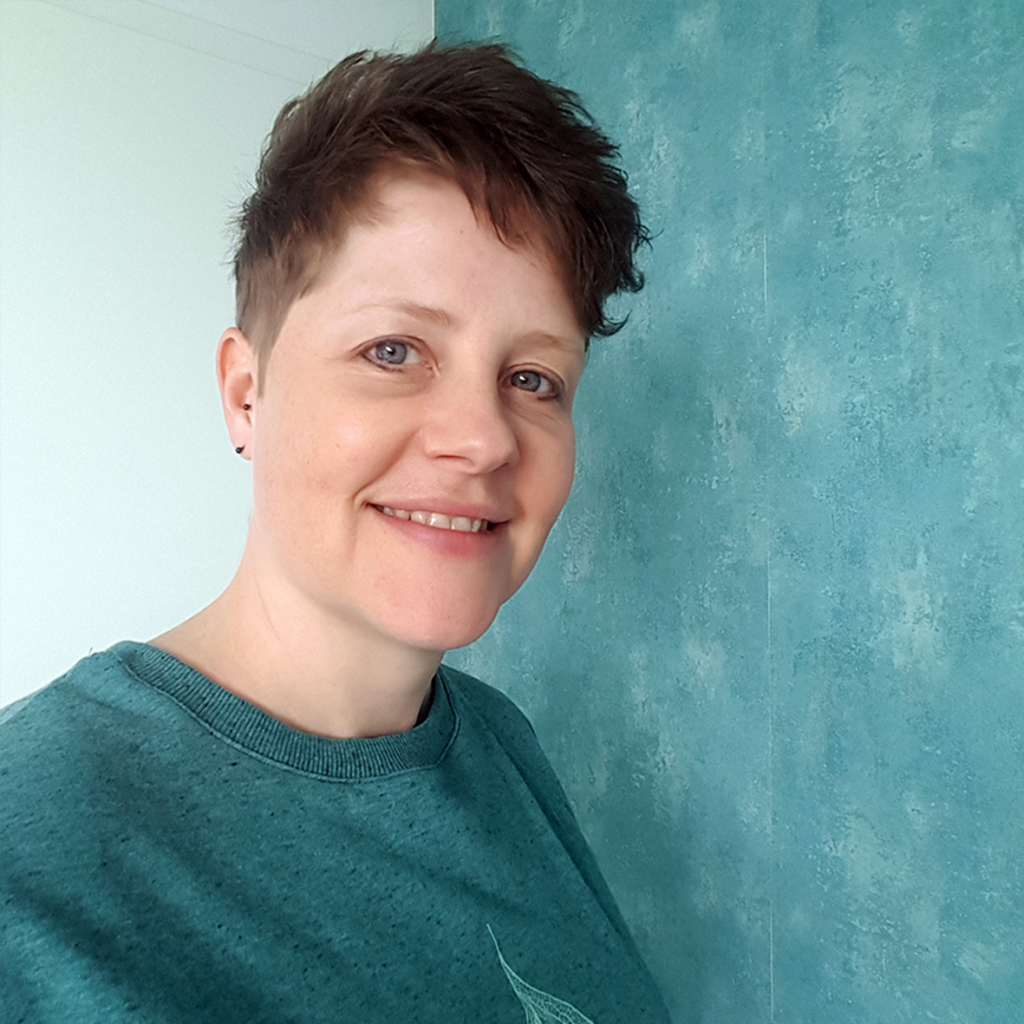
Alina Huldtgren is Professor of Digital Health and Intelligent User Interfaces at Düsseldorf University of Applied Sciences. She holds a PhD in HCI and runs a co-design lab for digital health (www.codeforhealth.de). Her research focuses on empowering, among others, vulnerable groups (e.g. people with dementia, children) in digital health development. She is PI in a project on engagement of older citizens, and partnering CoCre-HIT (cocre-hit.de), a project on co-creation in hybrid healthcare.
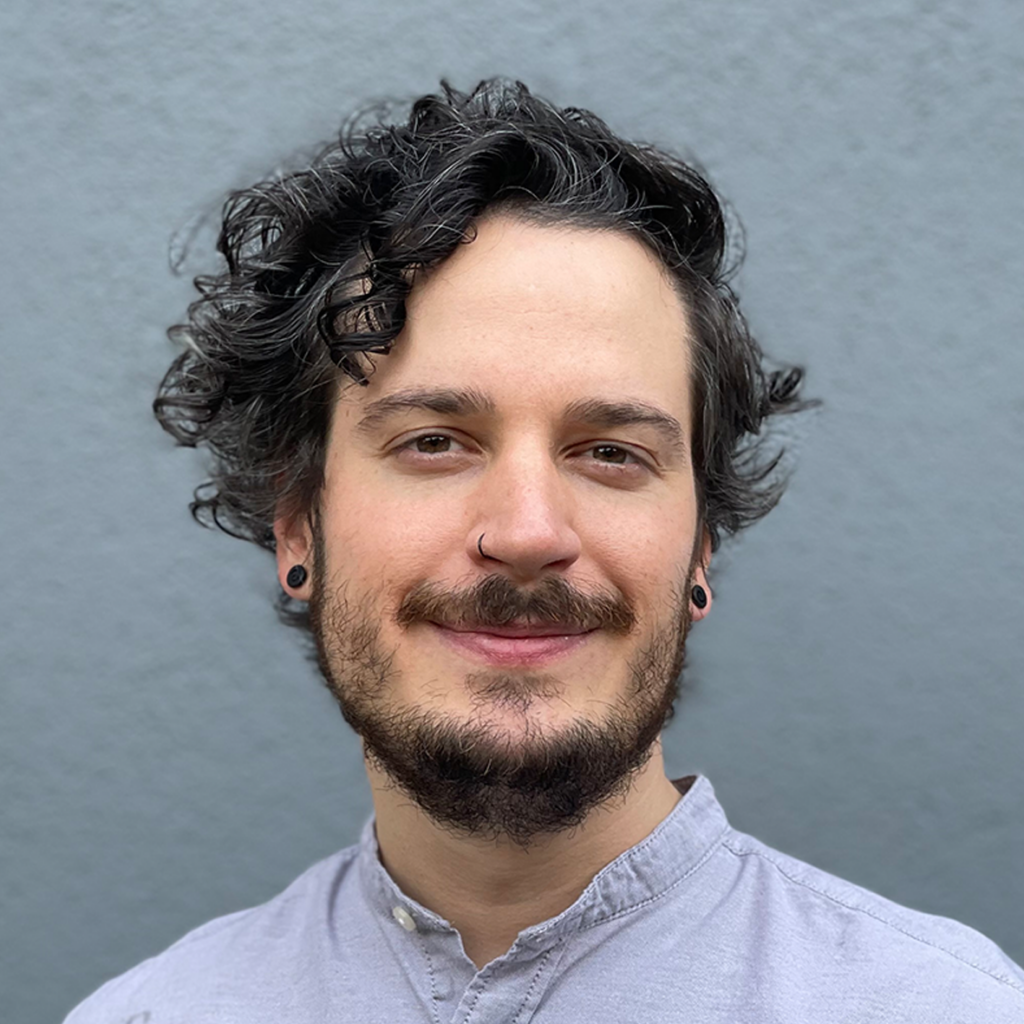
Holger Klapperich works as a post-doctoral researcher at the Faculty of Media at Düsseldorf University of Applied Sciences. He holds a PhD on the topic of "The compatibility of efficiency and well-being" and researches well-being-oriented design of digital technology in the eHealth sector. He led the funded project "NoStress" in the working group "Experience and Interaction" (Prof. Hassenzahl) and the EFRE-funded research project "Design for Wellbeing.NRW".

Tim Weiler is a research associate at the University of Siegen, Germany. His research focuses on PD and Co-Creation in healthcare. Hybrid interaction systems for maintaining health even in exceptional situations are analysed and a framework for co-creative methods is to be defined.
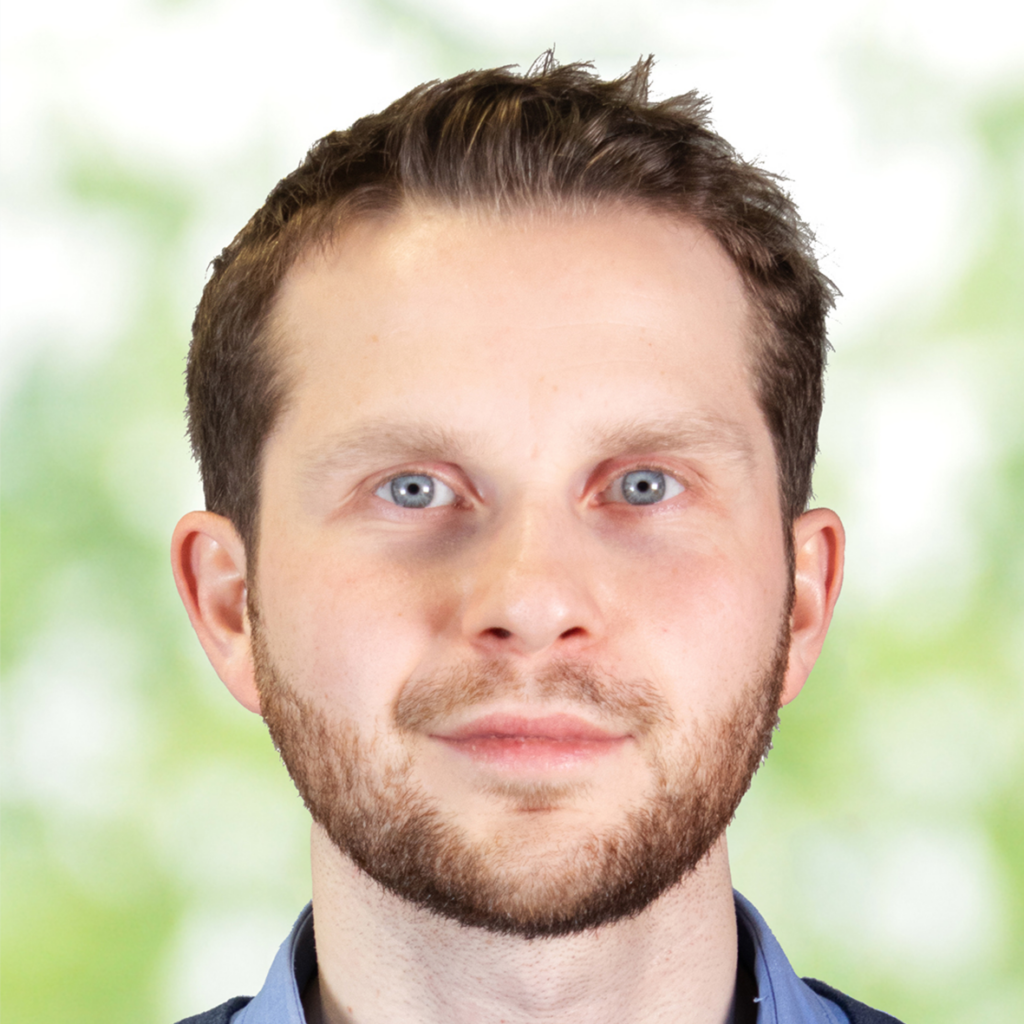
David Struzek is a PhD student at the Information Systems department, especially IT for the Ageing Society at the University of Siegen. He explores how people in urban public spaces can be supported in their physical movement or motivated by technical interactive systems. Furthermore, his interests lie in the design of good usability and UX with the support of creative methods.

Claudia Müller is a Professor (Subst.) of Socio-Informatics, specialising in “IT for the ageing society” at the University of Siegen, Germany. Her expertise is PD with and for older adults, vulnerable user groups and local communities. She is representative chairwoman of the commission of the Eighth Federal Government Report on Older People.

Lone Malmborg is an Associate Professor and Head of Digital Design Department at the IT University of Copenhagen. She holds a PhD in Computer Science / Informatics. Her latest research explores how co-design, interaction design and social innovation can change the research agenda in design and ageing, and more specifically design related to social aspects of ageing. 2014 to 2017 she was the scientific coordinator of the EU project Give&Take – Designing a reciprocal exchange service for a good and engaged senior life. She co-edited Digital Creativity 1998-2015. Further, she was an appointed member of the Danish Disability Council 2011-2015 working for an inclusion and participation agenda.

Mark Rouncefield is a Senior Professor at the University of Siegen. Previously he was a Reader in Social Informatics in the School of Computing and Communications, Lancaster University. His research interests are in CSCW and HCI and involve the study of various aspects of the empirical study of work, organisation, human factors and interactive computer systems design, working across traditional disciplinary boundaries to address challenging socio-technical problems. He was awarded a Microsoft European Research Fellowship for hiswork on social interaction and mundane technologies (2006-08). He authored several books, e.g. Configuring user-designer relations: Interdisciplinary perspectives (2009); Doing Design Ethnography (2012). Recent research, in collaboration with Rob Procter of Warwick University, has focused on understanding aspects of professional detection and diagnosis in healthcare as a precursor to the design and evaluation of AI technologies.
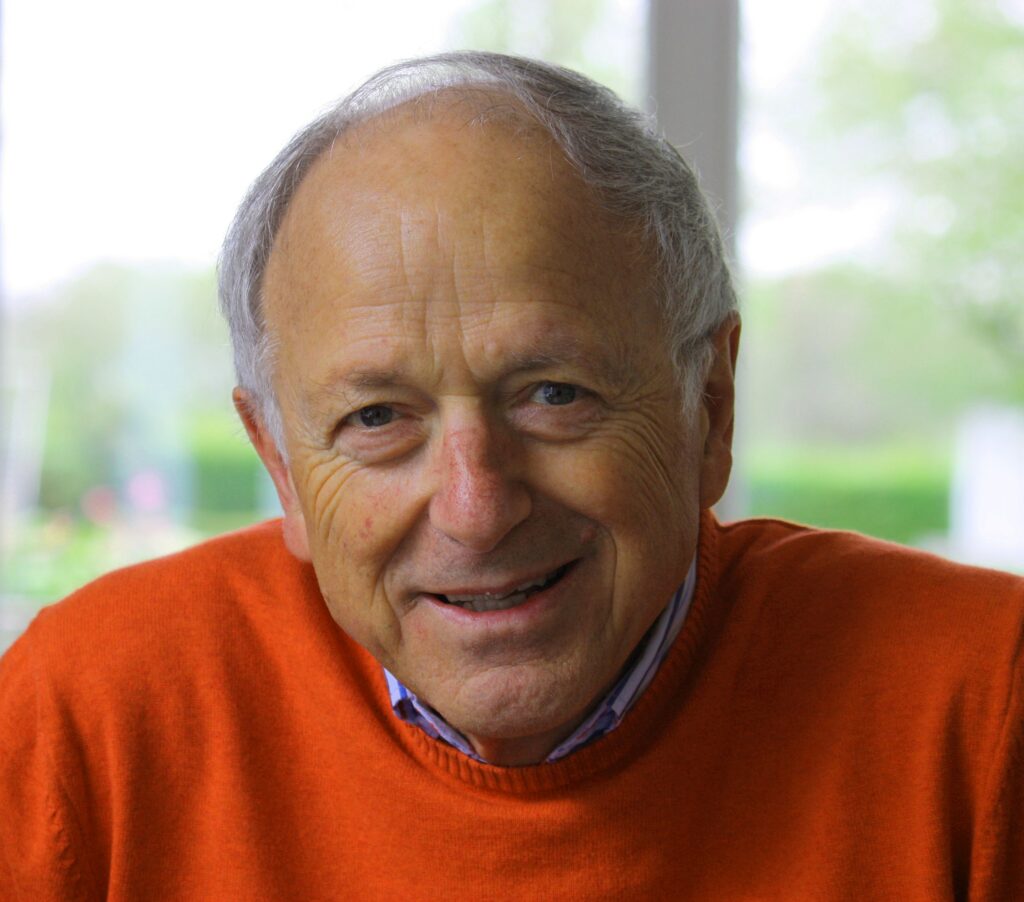
Gerhard Fischer is Professor Emeritus and Professor Adjunct of Computer Science, a Fellow of the Institute of Cognitive Science, and the Director of the Center for Lifelong Learning and Design (L3D) at the University of Colorado at Boulder. He is a member of the Computer Human Interaction Academy, a Fellow of the Association for Computing Machinery, and a recipient of the RIGO Award of ACM-SIGDOC. In 2015, he was awarded an honorary doctorate from the University of Gothenburg, Sweden. His research has focused on new conceptual frameworks and new media for learning, working, and collaborating, human-centered computing, assistive technologies, and design. His recent work is centered on quality of life in the digital age, social creativity, meta-design, co-creation, cultures of participation, and design trade-offs.
